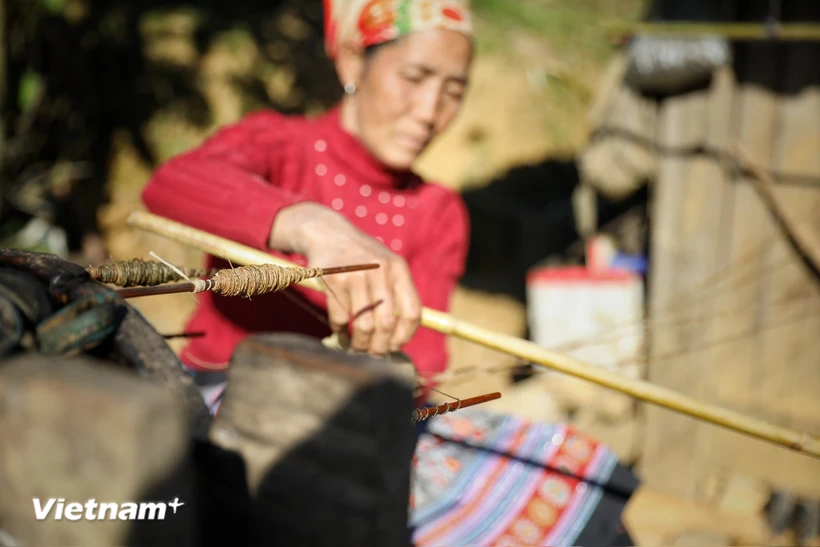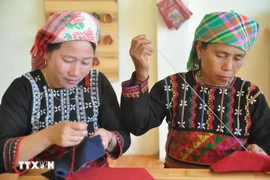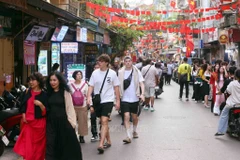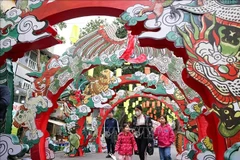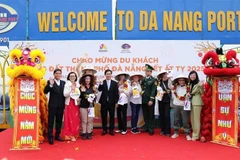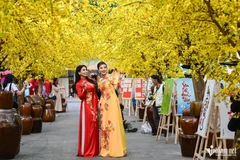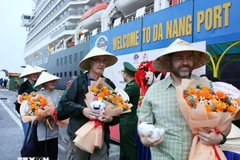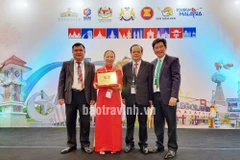Hanoi (VNA) – Community-based tourism is seen as a key product in Vietnam's tourism ecosystem, aimed at preserving and diversifying livelihoods for local communities while improving their quality of life.
The Ministry of Culture, Sports, and Tourism has recently approved a project to develop this type of tourism, with the goal of establishing a unified approach and positioning its brand in the country. The initiative also seeks to enhance access to public resources and services for rural areas, especially ethnic-minority and mountainous regions.
To achieve its targets, the project will focus on developing products and services that are linked to the growth of cultural industries, integrating authentic experiences in local crafts, and showcasing the traditional cultural values of ethnic groups. This will help create unique identities for each region, gradually develop Vietnam’s community tourism brand, and facilitate its extensive engagement in the global chain of cultural products and services.

Standardising a digital map of community-based tourism destinations
The project outlines a goal to develop community-based tourism as a key product in Vietnam’s tourism portfolio, and improve the quality of its services towards sustainable development. It also aims to diversify livelihoods for local communities and improve their living standards, particularly in regions with large ethnic minority populations, border areas, coastal regions, and islands.
By 2025, it is hoped that the cultural values and traditions of ethnic groups in recognised community-based tourism sites will be preserved and brought into play. At least 20% of these sites will have community centres, while 20% will feature traditional cultural and arts clubs with regular, quality activities. Furthermore, 30% of related service providers will be trained in tourism management, and 20% of the workforce will receive training to improve their hospitality skills.

The project also emphasises the need to establish effective management organisations at these sites and proposes creating frameworks for policy support to help develop the sector. Pilot models for community-based tourism in localities with tourism advantages will also be explored. One of the key objectives of this project is to build a database and digital map of officially recognised sites nationwide.
By 2030, the goal is to develop comprehensive community tourism products in major tourist centres and areas with a high concentration of visitors.
Creating distinctive, attractive tourism products
To achieve its objectives, the project outlines several key measures that involve investment policies, infrastructure, marketing and promotion, investment promotion, cultural value preservation, human resources, and the protection of the environment and natural resources.
A key focus is on effectively utilising government funding to restore and preserve traditional cultures while supporting community tourism. The project also prioritises creating distinctive community tourism products that cater to the tastes of target market tourists. It includes creating benefit-sharing models between communities, businesses and other stakeholders, and developing brands for local and national community-based tourism.

The initiative also promotes the application of digital technologies and smart solutions to enhance product development. It eyes the organisation of various events, forums, and trade shows to connect stakeholders, businesses and investors, and attract tourists to community tourism destinations.
The project stresses the importance of cultural etiquette and behaviour standards, ensuring that both visitors and locals adhere to respectful communication and conduct at related sites.
The project also aims to encourage the development of eco-friendly, organic, and clean products to serve tourists while boosting communications to raise awareness of environmental protection and responsible tourism principles among both locals and visitors./.
